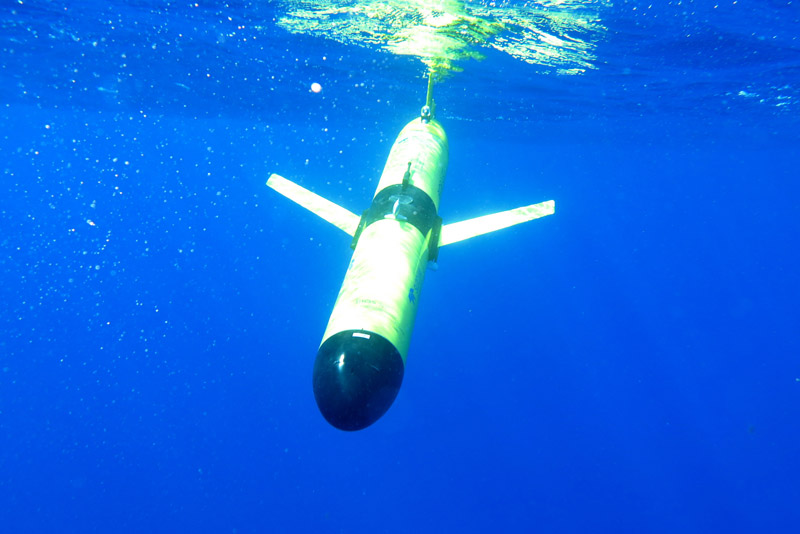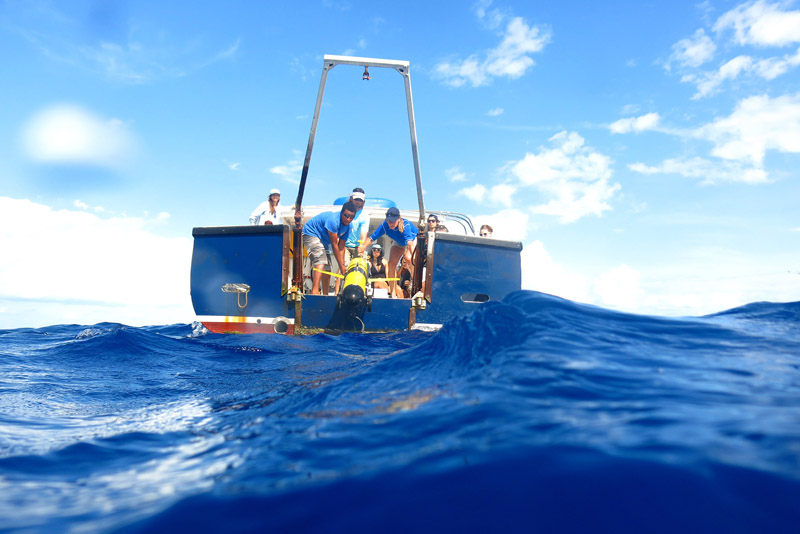Hurricane Risk Research To Focus On Bermuda
The Bermuda Institute of Ocean Sciences’ Risk Prediction Initiative [RPI] is undertaking new research focused on hurricane risk specific to Bermuda, in addition to its traditional focus on global catastrophic risk.
RPI Member companies and local sponsors have agreed to fund a project to reconstruct a pre-historical record of hurricanes in Bermuda, using information gained from examinations of sediments deposited by hurricane storm surges and waves in two island water bodies, Spittal Pond and Mangrove Lake.
BIOS said, “Additionally, efforts are underway at RPI to conduct an examination on the environmental conditions and impacts following Hurricane Joaquin’s passage near Bermuda last week. Underwater glider data of near-surface temperatures collected during Joaquin will also add to the understanding about the interactions between hurricanes and the ocean.
“Hurricane Joaquin passed approximately 60 nautical miles west of Bermuda in early October, about a year after Hurricanes Fay and Gonzalo, which both directly hit the island. This sequence of events prompted questions about the frequency of approach of these dangerous storms to Bermuda.
Through this new effort, RPI plans to work with local organizations to promote disaster risk reduction and foster an interest in hurricane data.
“Thanks to the generous initial sponsorship of the Bank of Butterfield, LRC Ltd., and Polaris Holdings, plus support from the RPI Member companies in the re/insurance sector, we are able to finally bring some expertise to bear on scientific questions surrounding Bermuda’s experience with hurricanes,” said Dr. Mark Guishard, who heads RPI.
In June, RPI hosted a hurricane workshop in London, in conjunction with its Member companies and academic partners. The workshop brought to light the need for further investigations into the perceived changes in hurricane landfall risk in the U.S..
Dr. Guishard is co-author of a paper that is soon to be published in the Bulletin of the American Meteorological Society on this topic.
“One of the questions which interests me is the frequency of storms here in Bermuda and the open Atlantic, and the relationship with those which make landfall in North America and the Caribbean,” he said. “Focusing on the Bermuda record as far back as 1,000 years will be of great benefit towards addressing this important question.”
BIOS is a U.S .not-for-profit organization with 501[c][3] status and a Bermuda registered charity [#116].
Read More About
Category: All, Environment, News





Wow! Great stuff. Really interesting work
Garbage.
Next they will find Dinasours
Ohh maybe next time the will find a treasure, gold he he
Once again, thank you to BIOS and all who are funding this research which will benefit Bermuda and our ultimate safety. Thank you for your generosity.